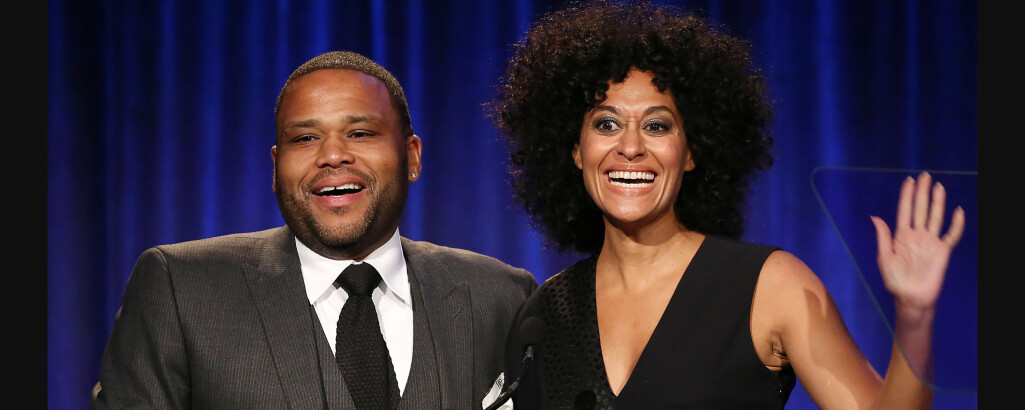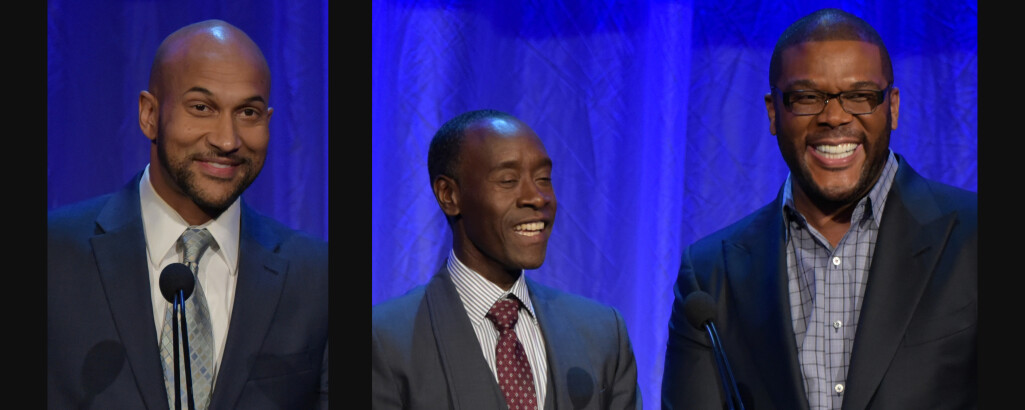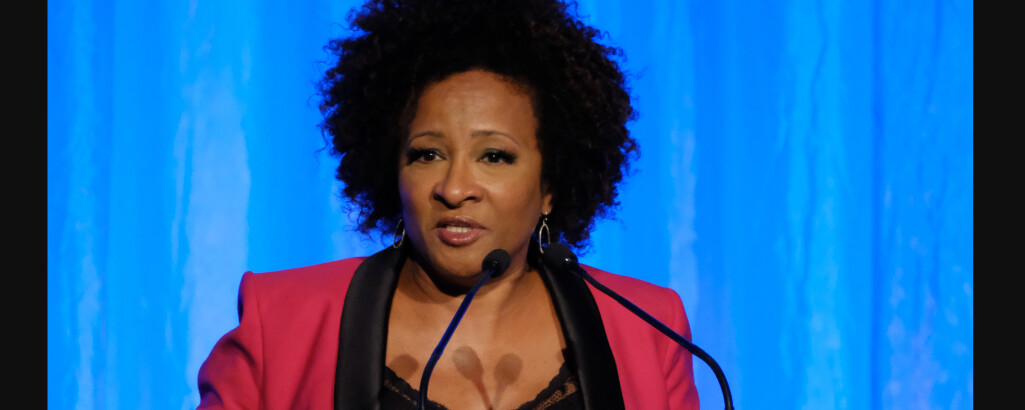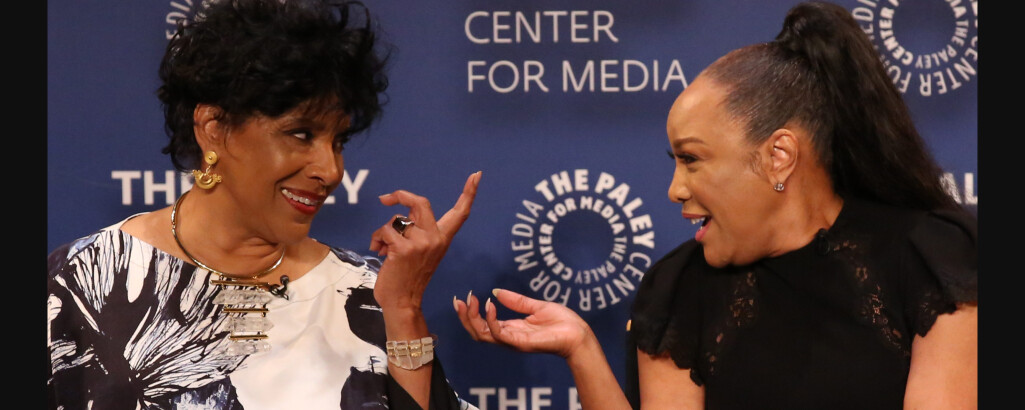Comedy
Some of the earliest examples of Black life in television comedy included adaptations of the hit radio shows Beulah and The Amos 'n Andy Show, both of which presented caricatures of their Black characters. For the next several decades, Black characters in TV comedy were mostly relegated to the background, but in 1968, Diahann Carroll broke new ground in the sitcom Julia. Playing a widowed nurse with a young son, she was the first Black woman to lead a sitcom in a non-domestic role. In the 1970s, Norman Lear's production company brought hits like Sanford and Son, The Jeffersons, and Good Times to the airwaves, creating some of TV comedy’s most iconic hits. Comedians like Flip Wilson, Richard Pryor, Dick Gregory, and Moms Mabley reached national audiences with the numerous comedy variety shows on the networks’ schedule. Since then, the work of Black comedic writers, producers, directors, and stars has entered our homes and hearts through the small screen and it has grown more sophisticated and fearless with every generation. Shows like In Living Color, The Cosby Show, A Different World, The Fresh Prince of Bel-Air, and Living Single helped pave the way for twenty-first century favorites like Girlfriends, black-ish, Everybody Hates Chris, Tyler Perry's House of Payne, Insecure, and Atlanta.
![]()
Icons & Milestones
- Ethel Waters becomes the first Black performer to star in a weekly television sitcom when Beulah premieres on ABC on October 3, 1950.
- Eddie Anderson, radio’s first Black star, begins his fifteen-season run as “Rochester” on the television version of The Jack Benny Program, starting in October 1950.
- The first sitcom with an all-Black cast, The Amos ‘n Andy Show, is cancelled after two seasons (1951–53) due to pressure from the NAACP because of the show’s stereotyping of Black characters.
- Dick Gregory becomes the first Black stand-up invited to sit for an interview on Jack Paar’s couch, on Tonight in 1961.
- Diahann Carroll is the first Black actress to star in her own sitcom in a non-domestic role, playing a nurse on NBC’s Julia, 1968.
- Flip Wilson becomes the first Black performer to head a successful variety show when his weekly series runs on NBC, 1970–74.
- In 1975, Richard Pryor hosts the seventh episode of Saturday Night Live, becoming the first Black entertainer to have that honor.
- The Cosby Show (NBC, 1984–92) is the first sitcom with a Black lead to reach number one in the yearly Nielsen ratings.
- Robert Guillaume becomes the first Black actor to win Emmys for a sitcom in both the supporting (Soap, 1979) and lead category (Benson, 1985).
- For her work on The Jeffersons, Isabel Sanford becomes the first, and so far, only Black winner for Outstanding Actress in a comedy series, in 1981.
- Jackée Harry becomes the first, and so far, only Black winner for Outstanding Supporting Actress in a comedy series, for 227 on NBC in 1987.
- In 1991, Fox premieres the sitcom Roc, starring Charles S. Dutton as a garbage collector and family man. The series tackles many issues, including gang violence, drug abuse, and same sex marriage. In its second season, Roc becomes the first sitcom since the 1950s to be broadcast live each week.
- With the 1993 premiere of Living Single on Fox, Yvette Lee Bowser becomes the first Black woman to create a prime-time television series.
- In 1996, Moesha debuts on UPN, starring pop star Brandy. The sitcom becomes the highest rated comedy on the network.
- In 1996, after appearing on In Living Color and Roc, Jamie Foxx gets his own network series. The WB’s The Jamie Foxx Show stars Foxx as an aspiring musician and goes on to run for 100 episodes.
- The groundbreaking sitcom Girlfriends premieres on UPN in 2000. Two decades later the show had become a cultural icon when Netflix started streaming the series.
- With her 2002 Emmy victory, Whoopi Goldberg becomes the first Black performer to achieve EGOT status (winner of an Emmy, Grammy, Oscar, and Tony).
- Released in February, 2004, Chappelle’s Show: Season 1 Uncensored goes on to become the biggest selling TV show on DVD of all time. The release of season two sells 1.2 million copies in its first week, breaking the single week record.
- In 2006, the Cartoon Network animated comedy The Boondocks wins a Peabody Award for its controversial episode “Return of the King.”
- In its first season, ABC’s black-ish wins the Peabody and then the NAACP Image Award for Outstanding Comedy Series for five consecutive years, 2015–19. The series has tackled such topics as police brutality, the 2020 Presidential election, and the COVID-19 pandemic.
- In 2012, Tyler Perry’s House of Payne airs its 254th episode, surpassing The Jeffersons as the most prolific black sitcom in TV history. A series revival premieres on BET in 2020.
- In 2017, Donald Glover becomes the first Black director to win the Emmy Award for Outstanding Directing of a Comedy Series, for FX’s Atlanta. He also receives Emmy nominations for his acting, writing, and producing work on the series, which also features an all-Black writing staff.
- In 2018, Yara Shahidi's character of eldest daughter Zoey Johnson is spun off from black-ish onto a show of her own, Freeform's grown-ish. The following year, the prequel mixed-ish premieres on ABC, adding a third show to the franchise.
- A Black Lady Sketch Show, created by Robin Thede, premieres on HBO on August 2, 2019, becoming the first sketch comedy series produced, written, and starring Black women.
- Currently in his eighteenth season, Kenan Thompson is the longest running cast member in the history of Saturday Night Live.
- In 2020, Apple TV+’s animated musical comedy Central Park premieres, starring former Hamilton cast members Leslie Odom, Jr. and Daveed Diggs
More Great Moments
![]()
© THE PALEY CENTER FOR MEDIA





